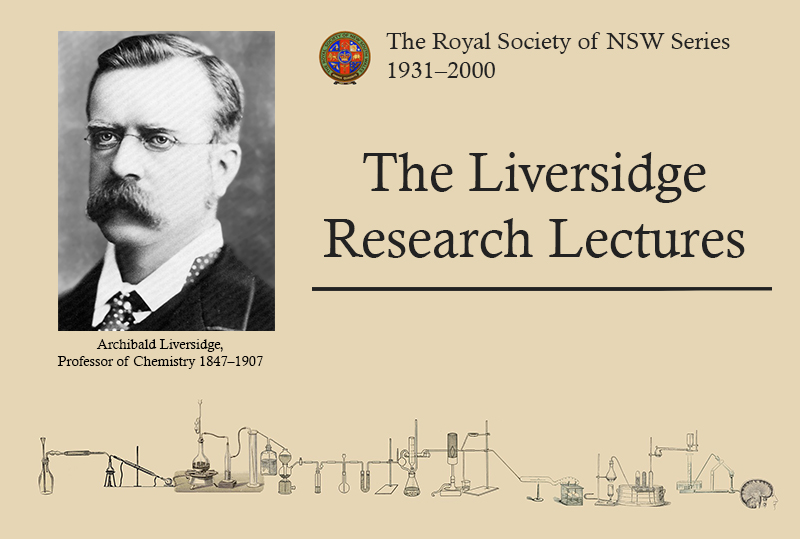About the Journal
Open Access Policy
This journal provides immediate open access to its content on the principle that making research freely available to the public supports a greater global exchange of knowledge.
Journal History

Archibald Liversidge, who became the second Professor of Chemistry at the University of Sydney, was an important figure in the Australian scientific community in the late 1800s and early 1900s. It was mainly through the initiative and drive of Liversidge that the Australasian Association for the Advancement of Science (AAAS) was established in 1885, and held its first meeting in Sydney in 1888. Liversidge raised the profile and standard of chemistry in Australia, and he became a Fellow of the Royal Society in 1882.
After his death in 1927, as was tradition at the time, the President of the Royal Society of NSW included in his annual Presidential Address a short biographical memoir of Liversidge’s scientific career. Below is an extract from the address delivered to the Society at its Annual Meeting on 2 May, 1928, by Professor J. Douglas Stewart.
ARCHIBALD LIVERSIDGE, M.A., LL.D., F.R.S., elected member 1872, and Honorary Member 1908, died 26th September, 1927, in his 80th year. Professor Liversidge was born at Turnham Green [East London] on November 17th, 1847, and received his first instruction in science from private tutors. In 1866 he entered the Royal College of Chemistry and the Royal School of Mines, at which, in the following year, he won a Royal Exhibition and medals in Chemistry, Mineralogy, and Metallurgy…
In 1870 Liversidge was elected to an open scholarship in Science at Christ's College, Cambridge. During his first year at Cambridge he held the post of Demonstrator in Chemistry at the University Laboratory for two terms…
In 1872, before he was 25, Liversidge accepted the Chair of Chemistry and Mineralogy [at] the University of Sydney, NSW…
Of the Royal Society of New South Wales he was Hon. Secretary for 13 years, 1874-1884, and 1886-1888, and served three terms of office as President, 1885, 1889, 1900, being also for many years the editor of the Society's Journal. He originated the Faculty of Science at the Sydney University, 1879, and was Dean till 1904, and also a member of the Senate…
Truly a wonderful record in the cause of Science. To the Royal Society of New South Wales he was much attached, and his last service was to bequeath to it all his medals and diplomas, together with a sum of £500 to found a Research Lectureship in Chemistry.
In an extract from Liversidge’s will, he explains his reasoning behind the bequest.
I make the above bequests for the encouragement of research in Chemistry not in ignorance of the fact that there are already in existence other Lectureships in Chemistry but because there are none such as I contemplate, namely, for the express encouragement of research and for the purpose of drawing attention to the research work which should be undertaken and because having regard to the vastness of the subject I wish the subject to be elucidated by as many workers as possible and feel that the friendly emulation of the lecturers holding the various lectureships above-mentioned may be of benefit.
Archibald Liversidge was an advocate for open access in science, though the term would not gain popularity for over 90 years after his death. His final wishes indicated that:
The lecture hall … be open to the public free or at a nominal fee to cover incidental expenses such as the hire of the hall. If possible the lecture shall be published in a cheap form so as to disseminate the information for the benefit of such of the public as are unable to attend and the Lecturer shall in every case be required to present to the Institution concerned a correct and complete copy of his lectures for the above purpose.
Therefore it is with great pleasure we now make available online to the public the thirty-two lectures given from 1937–2000 as part of the Royal Society of NSW Series.
For more information, including on the other four series of Liversidge Lectures, and references for the above, please read the full Introduction to this series, written by David Collins.
